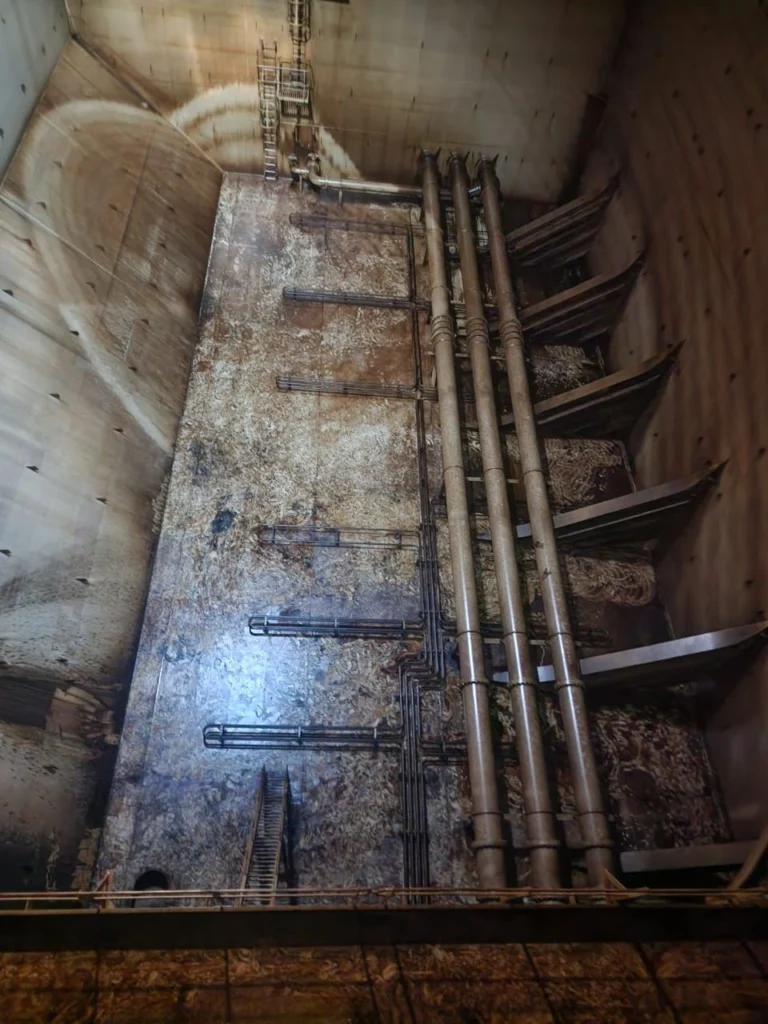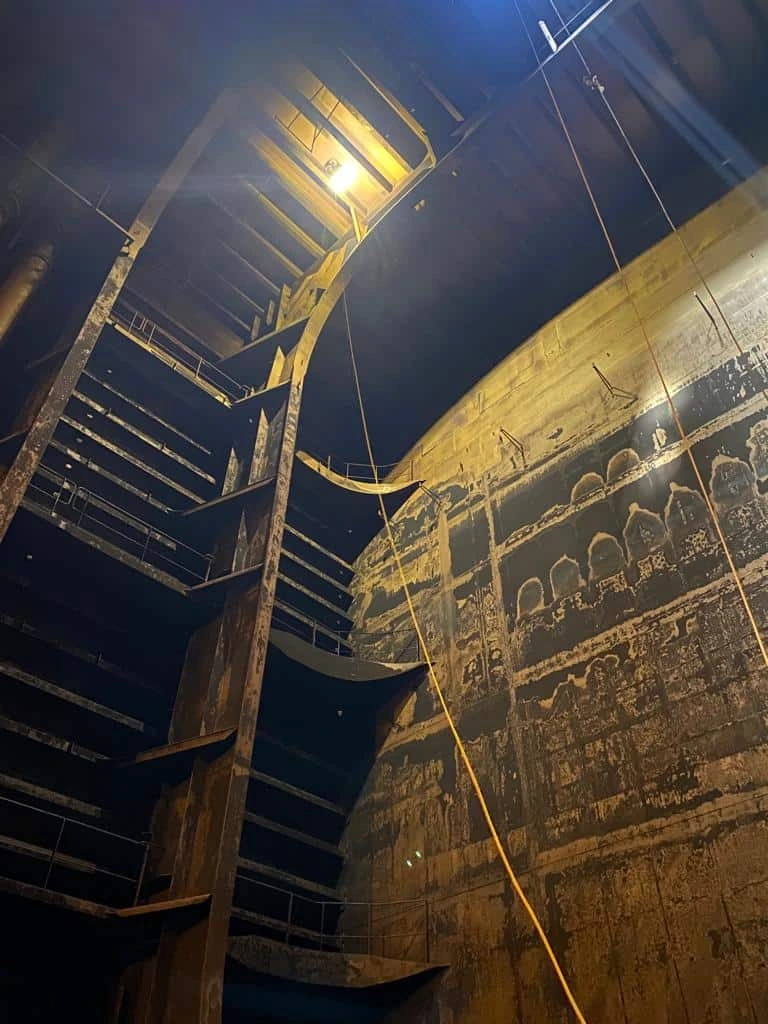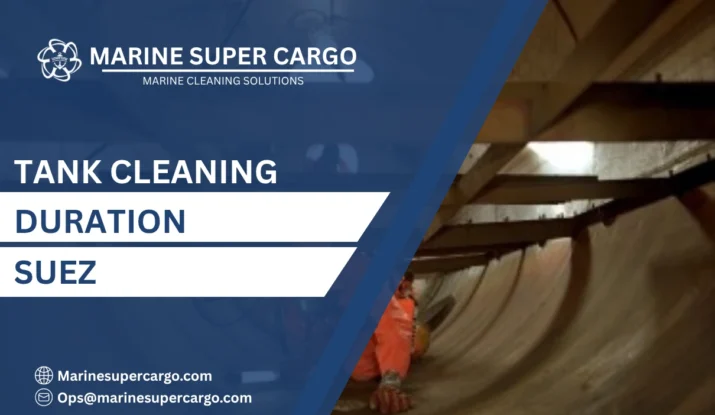Tank cleaning duration Suez operations directly impact vessel schedules and operational costs in this critical maritime transit point. Understanding tank cleaning duration Suez factors enables better voyage planning and cost management. Marine Super Cargo specializes in optimizing tank cleaning duration Suez while maintaining quality and compliance standards.
Primary Factors Affecting Tank Cleaning Duration
Tank cleaning duration Suez depends heavily on previous cargo characteristics. Sticky petroleum products like heavy fuel oil require extended cleaning periods compared to light diesel oil. The molecular structure of residues influences how quickly they dissolve and remove from tank surfaces.
Tank size significantly impacts cleaning duration. Larger tanks with capacities exceeding 10,000 cubic meters naturally require more time for thorough cleaning from bow to stern. Marine Super Cargo deploys multiple cleaning machines simultaneously to reduce overall tank cleaning duration Suez for large vessels.
Water Temperature and Cleaning Methods
Hot water applications reduce tank cleaning duration Suez substantially for petroleum cargoes. Elevated temperatures between 60-80°C accelerate residue dissolution, cutting cleaning time by 30-50% compared to cold water methods. Marine Super Cargo maintains heating equipment to optimize tank cleaning duration Suez.
Cold water cleaning methods may extend duration but prove necessary for temperature-sensitive chemical cargoes. The MARPOL Annex II requirements for certain chemicals prohibit hot water use, affecting overall cleaning schedules. Our expertise ensures efficient cold water operations when hot water is unsuitable.
The choice between manual cleaning and mechanized systems dramatically influences tank cleaning duration Suez. Automated Butterworth tank cleaning systems complete operations faster than manual methods while providing superior coverage. Modern tank cleaning machines optimize duration through programmable spray patterns.



Regulatory Compliance Impact on Duration
MARPOL Annex I procedures for crude oil washing add specific time requirements to tank cleaning operations. Compliance with IMO guidelines mandates proper gas-freeing and ventilation before cleaning commences. These safety procedures necessarily extend total tank cleaning duration Suez.
Pre-cleaning assessments and atmospheric testing consume 1-3 hours before actual cleaning begins. Marine Super Cargo conducts thorough safety evaluations while minimizing delays. Our systematic approach balances regulatory compliance with operational efficiency.
Documentation requirements per IMO MEPC resolutions add administrative time to tank cleaning operations. Certificate issuance and inspection protocols extend overall service duration. We streamline paperwork processes to minimize vessel delays.
Cost Factors in Tank Cleaning Operations
Tank cleaning duration Suez directly correlates with operational costs. Extended cleaning periods increase labor expenses, equipment rental fees, and vessel idle time costs. Marine Super Cargo optimizes efficiency to control overall expenses for vessel operators.
Waste disposal expenses increase proportionally with cleaning duration and wastewater generation. MARPOL regulations mandate proper waste handling, adding to overall operational costs. Marine Super Cargo coordinates with approved reception facilities for cost-effective waste management.
Optimizing Tank Cleaning Duration
Advance planning reduces tank cleaning duration Suez significantly. Vessels providing detailed cargo history and next cargo requirements enable proper equipment and personnel preparation. Marine Super Cargo offers pre-arrival consultation to optimize scheduling.
Proper equipment maintenance ensures operational efficiency and prevents duration-extending breakdowns. We maintain comprehensive spare parts inventories and backup equipment to avoid delays. Reliability remains paramount for vessels operating on strict transit schedules.
Realistic Time Estimates for Common Scenarios
Single cargo tank cleaning for light petroleum products typically requires 4-6 hours with hot water systems. Heavy petroleum residues extend duration to 8-12 hours per tank. Chemical tank cleaning duration varies from 6-18 hours depending on product characteristics.
Complete vessel tank cleaning operations span 2-7 days for typical tankers. Larger vessels with 10+ cargo tanks require proportionally longer periods. Marine Super Cargo provides accurate time estimates based on specific vessel parameters.
Our comprehensive tank cleaning services encompass realistic scheduling that accounts for all duration factors. We communicate expected timelines clearly, enabling vessel operators to plan transit schedules effectively.
Conclusion
Understanding tank cleaning duration Suez factors enables informed decision-making for vessel operators. Marine Super Cargo combines experienced personnel, modern equipment, and efficient procedures to optimize tank cleaning duration Suez while maintaining regulatory compliance. Contact us for detailed time and cost estimates tailored to your vessel’s specific requirements.
FAQs
Q1: What is the minimum tank cleaning duration in Suez?
Minimum duration for a single cargo tank is approximately 4-6 hours for light products using hot water systems, including preparation, cleaning, and inspection time.
Q2: How does cargo type affect cleaning duration?
Heavy petroleum products require 2-3 times longer than light products. Chemical cargoes vary widely, with some requiring extended durations due to temperature restrictions or multiple wash cycles.
Q3: Can Marine Super Cargo provide emergency fast-track services?
Yes, we offer expedited services with additional crews and equipment deployment. Fast-track operations may increase costs but significantly reduce vessel detention time in urgent situations.
Q4: Does weather affect tank cleaning duration in Suez?
Extreme heat can accelerate certain cleaning processes while cold weather may require longer heating times. Generally, Suez’s climate allows year-round efficient tank cleaning operations.
Q5: How accurate are pre-service time estimates?
Our estimates achieve 85-90% accuracy based on provided vessel information. Unforeseen complications like excessive residues or equipment issues may extend duration slightly beyond initial estimates.


